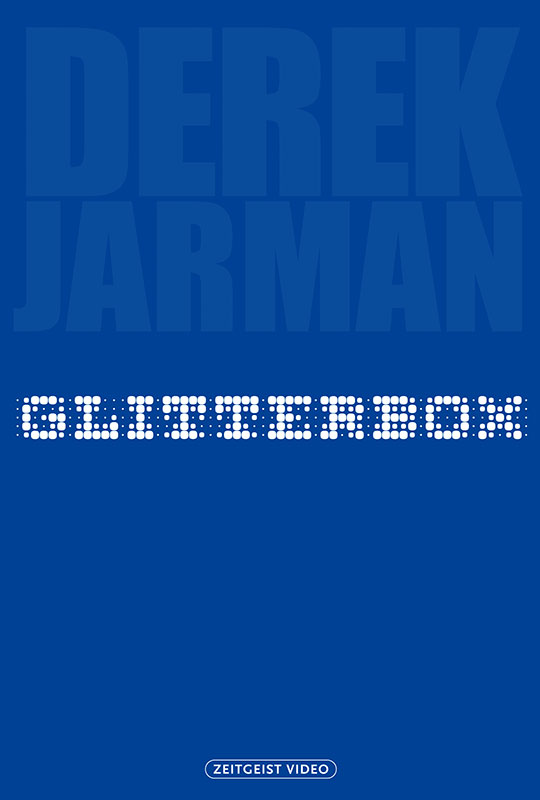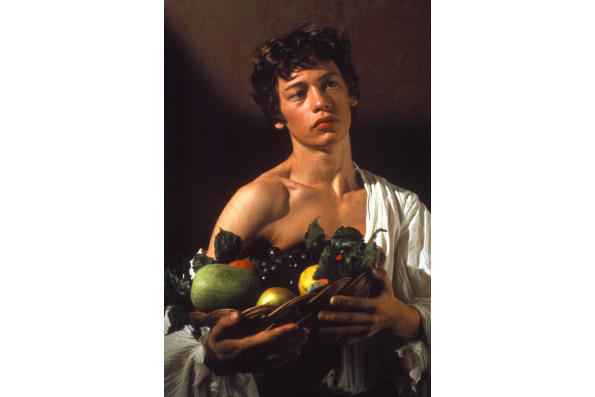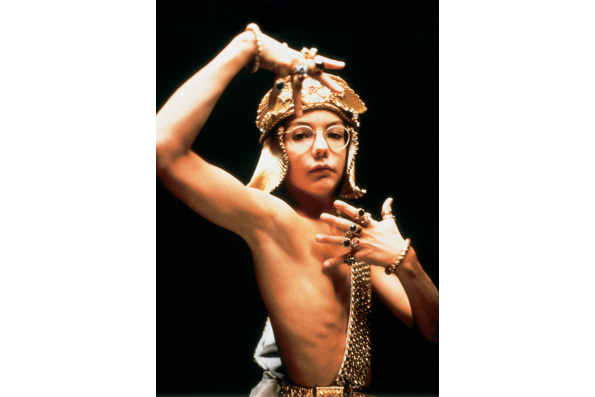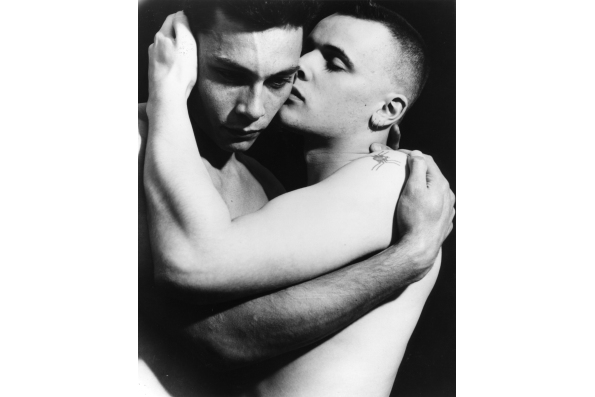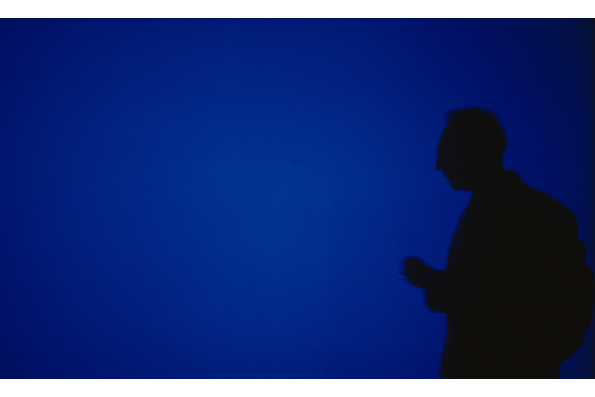Glitterbox: Derek Jarman x 4
Derek Jarman (1942-1994) was one of Britain’s most visionary and extraordinary film artists. Often in collaboration with actress and muse Tilda Swinton, Jarman’s lush, experimental reflections on art, politics, sexuality and identity transcend and subvert both the genres in which he worked—the period costume drama, the biopic—as well as the boundaries of so-called gay filmmaking.
This four-disc set boasts two of Jarman’s most accomplished arthouse features (Caravaggio and Wittgenstein), and two of his most personal and avant-garde works (Blue and The Angelic Conversation). Glitterbox also debuts a treasure trove of additional material including the posthumously assembled 54-minute film collage Glitterbug; rare behind-the-scenes footage; extensive video and audio interviews; production galleries; and a 20-page illustrated booklet with essays, an interview with Oscar-winning costume designer Sandy Powell (Shakespeare in Love) and a tribute by Peter Christopherson, founder of industrial music pioneers Coil.
DISC ONE: CARAVAGGIO (1986)
Starring Tilda Swinton in her debut film role, Sean Bean (Game of Thrones) and Nigel Terry (Excalibur), Caravaggio gorgeously re-imagines the volatile life of the controversial 17th-century painter through his brilliant, nearly blasphemous paintings and his flirtations with the Roman underworld. (90 mins).
Also available on single disc
DISC TWO: WITTGENSTEIN (1993)
Visually stunning and profoundly entertaining, Wittgenstein is the humorous portrait of the irreverent 20th-century Austrian philosopher who preferred detective fiction and Carmen Miranda musicals to Aristotle. (69 mins).
Also available on single disc
DISC THREE: THE ANGELIC CONVERSATION (1985)
Dreamlike and intensely poetic, The Angelic Conversation beautifully layers Dame Judi Dench’s emotive readings of Shakespeare love sonnets with ethereal Super-8 footage and languorous music by cult band Coil. (78 mins).
DISC FOUR: BLUE (1993)
In his final and most daring cinematic statement (a year before his death from AIDS in 1994), Blue lays bare Jarman’s physical and spiritual struggle through a rich soundscape of voices and music—set against a pure cobalt screen. (76 mins). Disc also includes GLITTERBUG (1994, 54 mins.)
For educational use please purchase these titles separately at the links above.
Derek Jarman
Derek Jarman, arguably Britain’s most visionary filmmaker since Michael Powell, reinvented himself as often as Picasso. Equally at home making slyly subversive costume dramas or dreamy experimental cine-poems, Jarman was a bracing antidote to the Masterpiece Theaterization of British cinema, and, as the world’s leading gay filmmaker of his day, was an inspiration to a generation.
Born in 1942, Jarman studied painting at the Slade School in London. His interest in costume and set design took him first to the Royal Ballet and then to the Coliseum in 1968 to work on a production of DON GIOVANNI. His first work in film was as the production designer on Ken Russell’s THE DEVILS in 1970.
Derek Jarman’s first feature, SEBASTIANE, was made in 1975 and was followed by JUBILEE, which was screened at the Cannes Film Festival in 1977. His third film, an idiosyncratic adaptation of Shakespeare’s THE TEMPEST, was shown at the Berlin Film Festival in 1979. In 1980r he made several short films including his first pop promo, with Marianne Faithful. In 1984 the Institute of Contemporary Arts in London held a retrospective of Jarman’s paintings and in the same year he made a short film inspired by a trip to the Soviet Union entitled IMAGINING OCTOBER. He also completed designs for a ballet by Micha Bergese and published his first book, the autobiographical DANCING LEDGE.
In 1986 CARAVAGGIO premiered at the Berlin Film Festival. This was a project which had taken Jarman seven years to realize but which finally was to gain him major recognition in the United States as a major innovative filmmaker. In the following year THE LAST OF ENGLAND was realized with a book of the same name. The film won an L.A. Critics Award. In 1988 Jarman directed WAR REQUIEM, based on Benjamin Britten’s work and featuring the last screen appearance of Laurence Olivier.
Jarman directed the stage show of The Pet Shop Boys World Tour in 1989. The following year saw the production of THE GARDEN, the making of which is chronicled in MODERN NATURE, a collection of Jarman’s journals which also begins to record his personal struggle against the effects of the AIDS virus. However, this was not to hinder his work and, in an astounding burst of energy, Jarman made three more films in the next three years: EDWARD II (1991), WITTGENSTEIN (1992), and BLUE (1993). His final, and most challenging cinematic statement, BLUE screened at the 1993 New York Film Festival in November where Jarman received a very emotional standing ovation.
Derek Jarman died of complications from AIDS on February 19, 1994.



